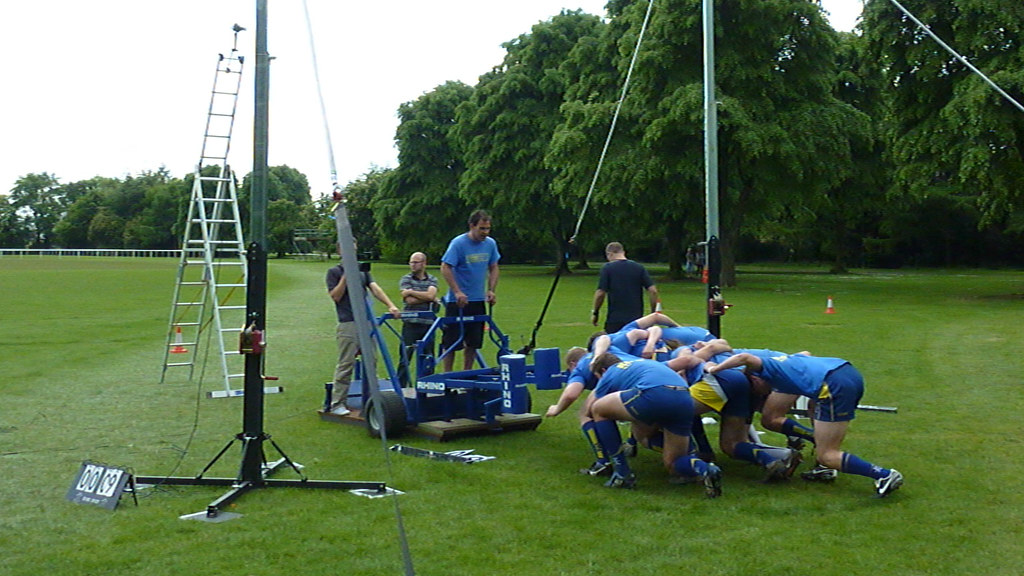The University of Bath has received funding from the International Rugby Board to launch a major study of the scrum that will that drive best practice player welfare policy in this critical area of the game.
The two-year study – the Biomechanics of the Rugby Scrum - will provide an in-depth analysis of biomechanical forces acting at the contact interface between the front rows in the scrum, using controlled live and scrum machine situations in order to identify better playing, coaching and refereeing techniques for this key facet of the game.
Leading experts from the coaching, medical and scientific fields will drive the two-phase study which will analyse the whole spectrum of the rugby playing population, from elite professional teams to University, community club and school level.
The project will be lead by Dr Grant Trewartha and Dr Keith Stokes from the University’s Sport, Health & Exercise Science group.
Dr Trewartha, principal investigator on the project, said: “We are excited to be involved in the project and look forward to providing data to inform future scrummaging practices. It's great to be involved with the IRB for such a large scale project which broadens our contribution to the science of rugby.”
With the safety and welfare of players central to the IRB’s medical strategies, the programme will deliver a framework for a better understanding of the scrum, the loads that players are subjected to under a variety of conditions and the cause of associated issues such as collapses and how best to address key areas while ensuring that the welfare of the player always comes first.
Dr Trewartha’s team will be collaborating with force monitoring experts Structural Statics Ltd and with medical input from Dr Mike England, Community Rugby Medical Officer for the Rugby Football Union, the governing body of the sport in England. The project will also regularly consult with and feed back to a number of rugby partners, including senior scrum coaches from major Unions and experienced scrum practitioners such as Rugby Players’ Association Chairman, and Bath Rugby prop David Barnes.
The first phase of the programme, which gets under way this month, will focus on measuring scrum engagement forces with a study of elite and community packs scrummaging under a variety of strictly monitored conditions on an instrumented scrum machine. The second phase will involve live pack scenarios, during which the same groups who had previously used the machine will be tested under a variety of strictly controlled engagement sequences.
IRB Chairman Bernard Lapasset said: “We are delighted to be working in partnership with the University of Bath to deliver what will be the most comprehensive study of the scrum. The University’s Sport, Health & Exercise Science group are world leaders in this type of study and we are excited about what can be achieved for the game through the delivery of this ambitious project.
“The scrum is an integral area of the game and the analysis will provide a comprehensive set of research and data that will shape a better understanding of the dynamic forces at work in the set scrum, identify key focus areas and shape player welfare policy, promoting the best possible techniques for playing, coaching and refereeing this unique area of the game.”
Dr Mike England added: “Little is known about the forces and motions involved in rugby scrummaging, with very little objective data being collected since the advent of professionalism over 10 years ago. Along with the IRB we have identified a need to look at the biomechanical demands experienced by players during the rugby scrum, particularly during scrum engagement, with a view to understanding more about how to maximise performance and how to manage injury risk.
“The RFU is currently working with the Sport, Health & Exercise Science group on an injury surveillance project of grassroots clubs and we are pleased to be able to input into a new major project with the University and the IRB.”

